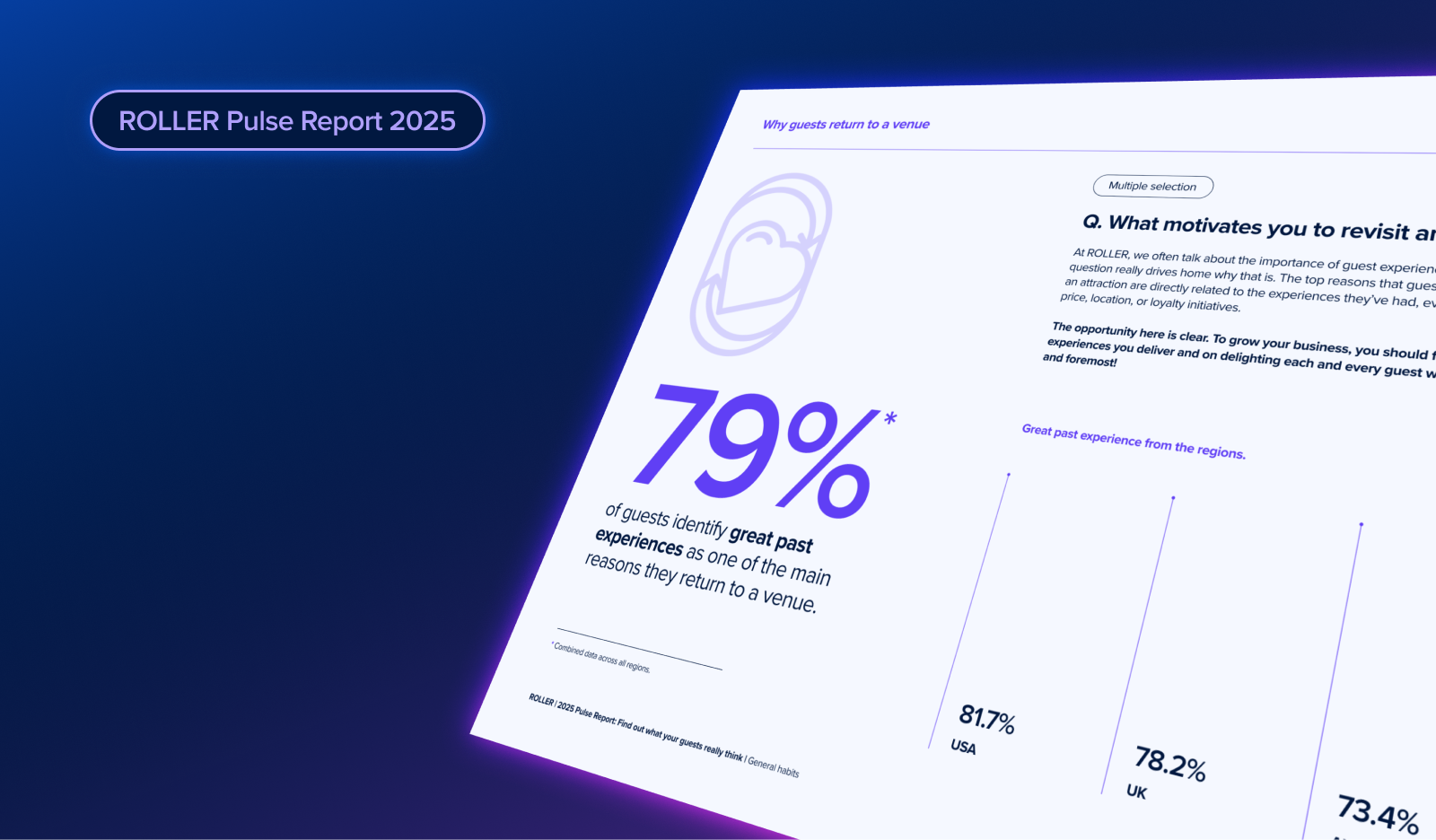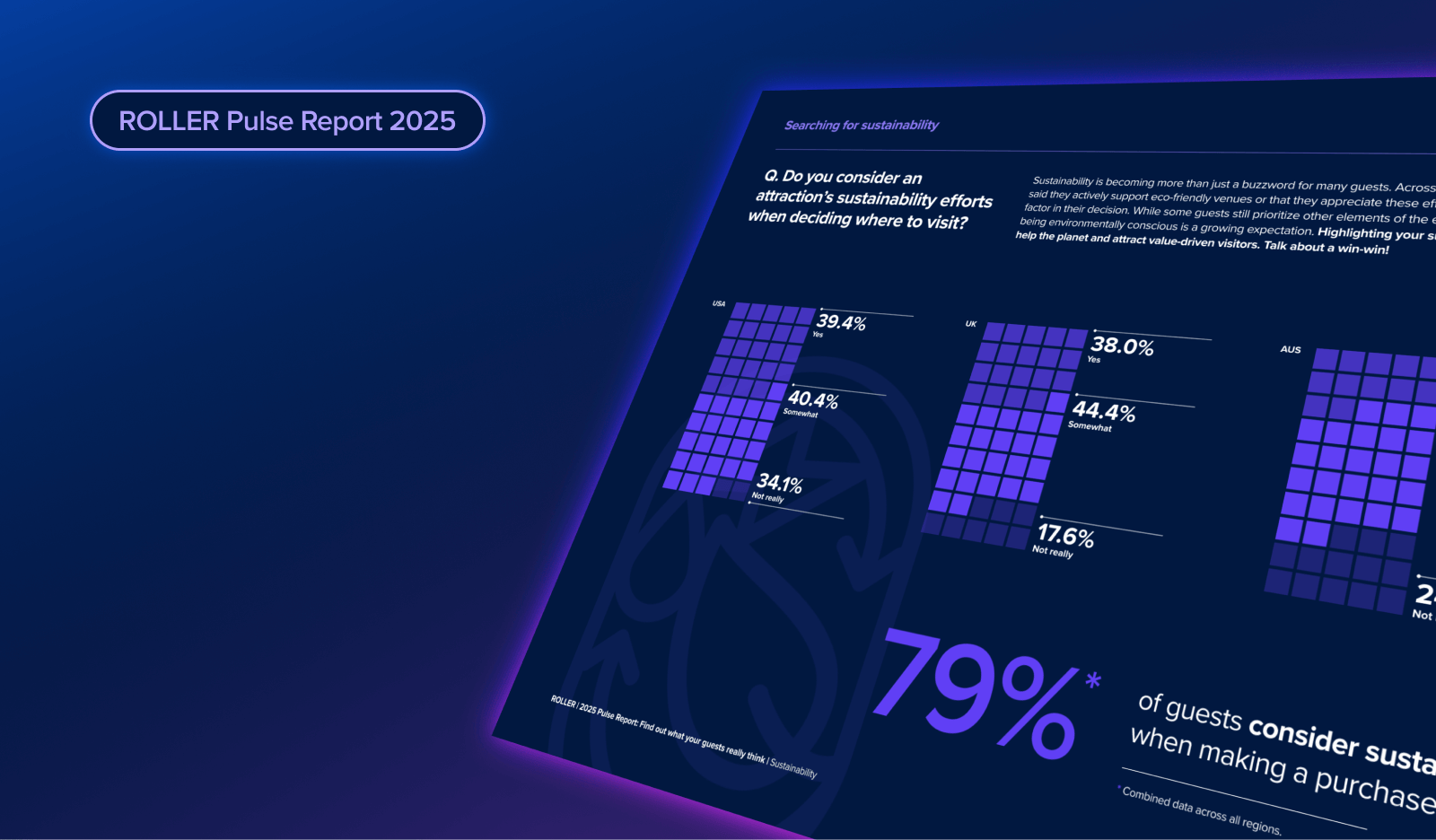How To Build a Great Business By Prioritizing Guest Experience

It’s hard to define precisely what it means to prioritize guest experience to achieve business success. Is it about hiring friendly people? Strong guest service training? Effective complaint resolution? Singing happy birthday? Yes, yes, yes, yes, and so much more. Prioritizing guest experience is about defining what is ingrained in the DNA of your organization - what do your guests sense when they visit, and what do your employees feel when they come to work every day?
Guest experience doesn’t need to be a fluffy subject. When applied, there are concrete principles that, will enhance the efforts of every other department within your organization. A guest-centric business grows organically and has the strongest competitive differentiator.
This article will cover three lessons from companies that have embraced guest or customer experience and have become wildly successful as a result.
Create an 11-star experience
Company: Airbnb
Bed and breakfasts have been around for what seems to be as long as time itself, and the vacation home rental business is not far behind. But until 2008, the non-hotel lodging industry was fragmented and disconnected. When Airbnb came onto the scene, they recognized that they were not just providing the platform for people to book leisure or business travel but that they had an opportunity to create a meaningful impact on their guests’ lives.
In a brainstorming session, they determined the best possible experience that an Airbnb guest could have. A 5-star experience is usually seen to be the summit of hospitality achievement - think Ritz Carlton and Four Seasons. Instead, they used 5-star as the starting point and went up from there.
This brainstorm session climbed far beyond the realm of feasibility as they let their unfiltered imaginations run wild. A 5-star experience was functional: the host showed up, and it worked. Then, as they added another star to the desired experience, the host knew about the guest’s interests and presented them with a bottle of wine, a surfboard, and a reservation at the best restaurant in town. This accelerated into a Beatles-style entry with thousands of screaming fans and a press conference and eventually led to Elon Musk showing up and telling you to get in the rocket ship.
If going to space with Elon Musk is outlandish and ridiculous, greeting a guest with surprising delights sounds pretty doable. If you craft a narrative of what an 11-star experience can be, then you work backward and define what lies within the realm of reality, and it’s usually much more significant than what you’re doing now.
Read more about Airbnb’s growth through relentlessly focusing on the customer.
Treat your customers like friends
Company: Chubbies
Chubbies began in 2012 and started by selling one thing but selling it well: shorts for men. By identifying a gap in the marketplace, they quickly defined their target customer and filled a need that they believed had gone unfulfilled for too long. So how did they build an army of loyal followers and amass more than 1.6 million followers on Facebook? They made their customers part of the brand, tearing down the barrier between seller and buyer.
In addition to collecting feedback via surveys, Chubbies has taken a more intimate approach by creating a customer committee. This ensures that the customer’s voice is in the conversation and can help steer business decisions, including new lines of apparel to launch and where to open physical retail stores.
Not only that, but the unboxing experience when the shorts arrive feels more closely aligned with opening a gift from a friend than buying something online. This is an important differentiator when e-commerce retail has become the norm these days. Beyond the expected clothing that is purchased, customers will also find surprise gifts that go beyond what they expected.
Today, Chubbies still sells high-quality shorts and has expanded their line into other forms of apparel - for men, women, and children. Since their original demographic is now 10 years older than when the company was founded, they have successfully grown as their customers have grown too.
Read more about how Chubbies built and embraced a community, driving customer growth.
Embrace when customers end the relationship
Company: Chewy
This one might seem counterintuitive, but it works. Customers will never end their relationship with your business in an ideal world, and their lifetime value will continue to grow. But how you respond when a customer completes their loyal relationship is highly telling how customer experience fits your overall strategy.
Chewy is an online retailer focusing on pet food and other pet-related products. Many of Chewy’s customers are set up on subscriptions for pet food to ensure that they receive orders frequently without having to remember to reorder. This is convenient for pet owners and is an excellent business model for Chewy. That is, of course, until the customer’s pet passes away.
If you Google “Chewy customer service stories,” you are guaranteed to be emotionally impacted by the search results. From an administrative standpoint, when a pet passes away, the owner no longer needs pet food to be delivered via subscription, and they are likely to have food that they no longer need. Instead of “checking the box” by canceling the subscription and writing it off as a churned customer, Chewy is known for taking it a step further. Recognizing that their customers are canceling due to a loss in their home, bereaving pet owners have been surprised with flowers, hand-written cards, or other personal touches that show that while the business relationship may be over, the personal relationship is still shining.
This human element is customer-centric, but there is a business benefit. The virality that these gestures often amplify Chewy’s marketing efforts that lead to customer growth of other pet owners who want more than just pet food by mail. Additionally, when previous customers reach the point where they are ready to bring a new pet back into their home, the business relationship often picks right back up where it left off.
Read more to learn incredible stories of how Chewy fosters relationships with customers who have lost their pets.
Being a customer or guest-centric company is more than providing good customer service and smiling at guests when interacting with them. It involves a deep sense of understanding your customer, developing personal connections, and building these foundations into your infrastructure so that it doesn’t outgrow your guest experience culture.
Related articles

.png)
What the 2025 Pulse Report Reveals About Guest Booking Behavior at Attractions

2025 Pulse Report: How Sustainability Is Shaping Guest Expectations
Enhance your guest experience
Get free education, tips and inspiration to help you run a successful venue.
